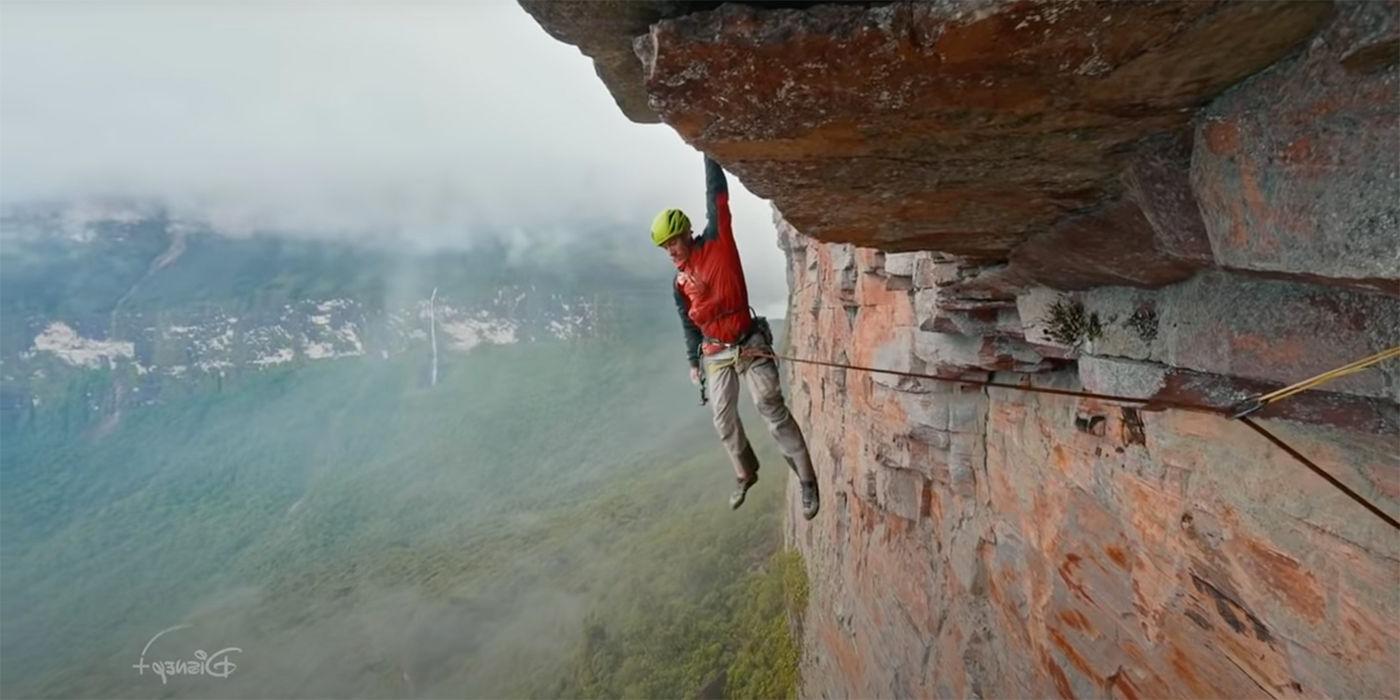The first Earth Day of the Covid years brought a bright-eyed, bright-skies novelty. In Northern India, for instance, people were delighted; for the first time, they could see the Himalayas.
The second pandemic Earth Day even brought a film about slowed-down world: “The Year the Earth Changed” saw nature rebounding vibrantly.
Now comes the third one (shown here with climber Alex Honnold on Disney+). Filmmaking has been difficult, but there’s still a big, ambitious line-up– see separate schedule under “news and quick comments: — on PBS and the streaming channels.
There’s a new Charlie Brown tale on Apple TV+ … a stunning global trip to national parks on Netflix … a rich Daviod Attenborough collection on Discovery+ … and films ranging from waste to wildfires on Paramount+.
And on Friday, the choices grow. BBC America starts a two-day marathon of epic nature reruns … PBS Kids fills much of its day with animated nature … And Disney+ adds three major documentaries. It has:
–“Polar Bear,” from DisneyNature, which previously made 10 epic movies that opened in American theaters around Earth Day. This one features animal that are very eco-dependent, said filmmaker Alastair Fothergill. “They hunt and live entirely on sea ice …. It’s likely polar bears will be the first of the sort of A-listers, stars of the natural world, who may go extinct because of global warming.”
— “Explorer: The Last Tepui,” with climber Alex Honnold on an expedition to let biologist Bruce Means explore an untouched environment. “I’m still driven by the climbing,” Honnold said. “But it’s definitely a big bonus to do something useful.”
— “The Biggest Little Farm: The Return,” revisiting Molly and John Chester, who left their city life to revive an abandoned, 81-acre farm in an eco-friendly way. Their 2018 film was successful; now John Chester sees the pandemic as tightening people’s focus, “bringing us together around the same problem …. It’s giving us an opportunity to really see just how unified we are with the biosphere.”
That pandemic made things complicated for the “Polar Bear” project. “We were in the middle of a massive shoot, with three cameramen,” Fothergill said. “After 10 days, Covid came in and we had to drag the whole team back.”
For the “Tepui” people, that pandemic seemed like a different world. “The expedition was so remote, out in the jungle, that we didn’t have to worry about Covid,” Honnold said. Then it “was a bit of a shock when we came back into civilization after a month …. We’d sort of forgotten that a pandemic was ongoing.”
There were plenty of other things to worry about, while stomping through that wet jungle. “It was kind of like wading through chocolate pudding for 10 straight days,” filmmaker Taylor Rees said. “We also had Bruce Means with us, who is … 80 years old and 300 pounds, so we were kind of moving at his pace.”
The Chesters, by comparison, could stay at home. As more people become interested in small, eco-friendly farms, they’ve conducted weekly tours, done Internet features and made two films.
“It wasn’t an easy thing for our marriage, to … farm and also tell a story and then another one,” John said.
Added Molly: “We have an amazing couples counselor.”
That may be something lots of people need, amid the third Covid-time Earth Day.
